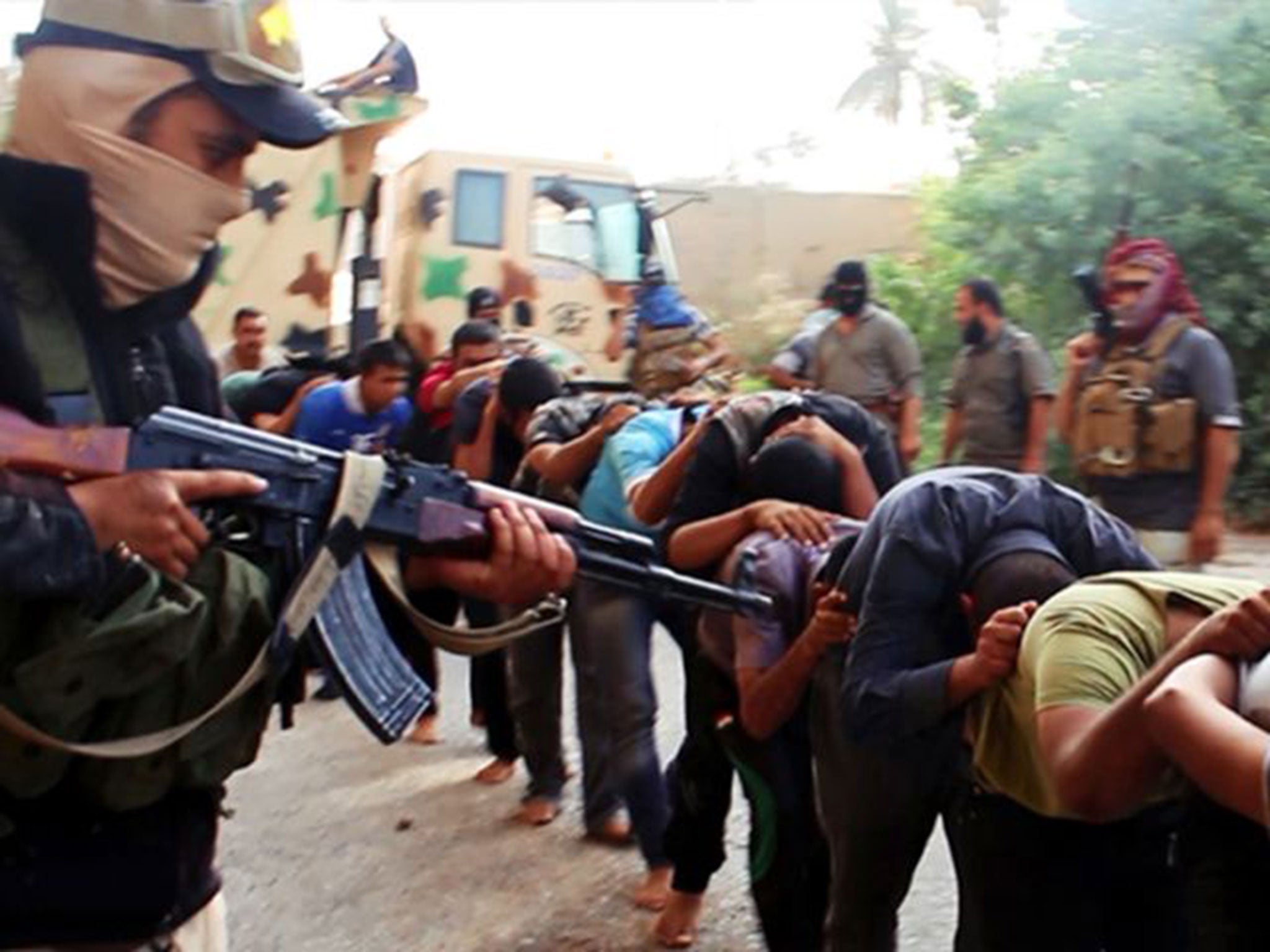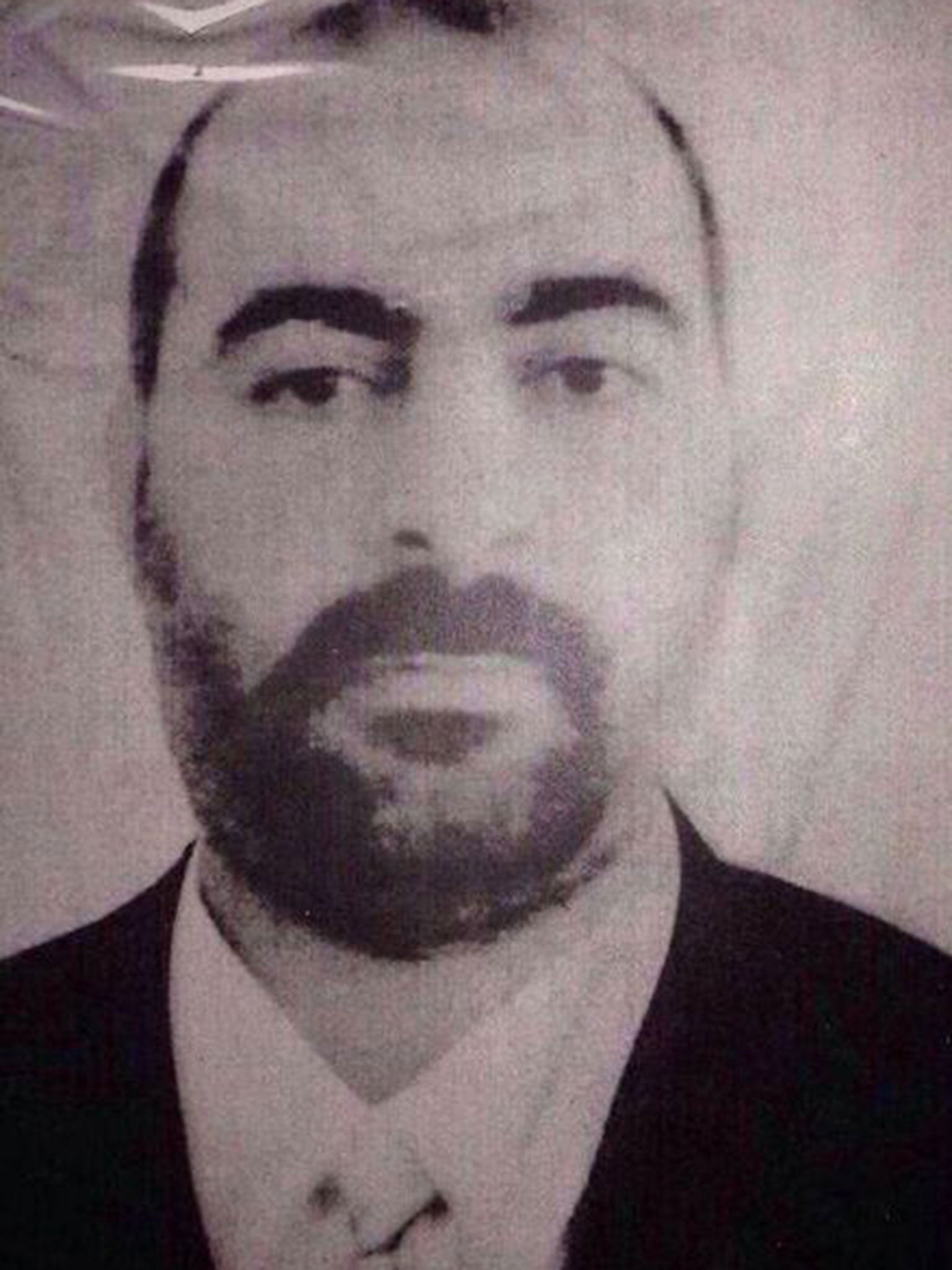Who are Isis? The rise of the Islamic State in Iraq and the Levant
The group, led since 2010 by Abu Bakr al-Baghdadi, now controls vast swathes of land across Iraq and Syria

Your support helps us to tell the story
From reproductive rights to climate change to Big Tech, The Independent is on the ground when the story is developing. Whether it's investigating the financials of Elon Musk's pro-Trump PAC or producing our latest documentary, 'The A Word', which shines a light on the American women fighting for reproductive rights, we know how important it is to parse out the facts from the messaging.
At such a critical moment in US history, we need reporters on the ground. Your donation allows us to keep sending journalists to speak to both sides of the story.
The Independent is trusted by Americans across the entire political spectrum. And unlike many other quality news outlets, we choose not to lock Americans out of our reporting and analysis with paywalls. We believe quality journalism should be available to everyone, paid for by those who can afford it.
Your support makes all the difference.With its multi-pronged assault across central and northern Iraq in the past one and a half weeks, the Islamic State of Iraq and the Levant (Isis) has taken over from the al-Qa’ida organisation founded by Osama bin Laden as the most powerful and effective extreme jihadi group in the world.
Isis now controls or can operate with impunity in a great stretch of territory in western Iraq and eastern Syria, making it militarily the most successful jihadi movement ever.
While its exact size is unclear, the group is thought to include thousands of fighters. The last "s" of "Isis" comes from the Arabic word "al-Sham", meaning Levant, Syria or occasionally Damascus, depending on the circumstances.
Led since 2010 by Abu Bakr al-Baghdadi, also known as Abu Dua (see below), it has proved itself even more violent and sectarian than what US officials call the “core” al-Qa’ida, led by Ayman al-Zawahiri, who is based in Pakistan.
Isis is highly fanatical, killing Shia Muslims and Christians whenever possible, as well as militarily efficient and under tight direction by top leaders.
The creation of a sort of proto-Caliphate by extreme jihadis in northern Syria and Iraq is provoking fears in surrounding countries such as Jordan, Saudi Arabia and Turkey that they will become targets of battle-hardened Sunni fighters.
The Isis tactic is to make a surprise attack, inflict maximum casualties and spread fear before withdrawing without suffering heavy losses. Last Friday they attacked Mosul, where their power is already strong enough to tax local businesses, from family groceries to mobile phone and construction companies. Some 200 people were killed in the fighting, according to local hospitals, though the government gives a figure of 59 dead, 21 of them policemen and 38 insurgents.
Isis specialises in using militarily untrained foreign volunteers as suicide bombers either moving on foot wearing suicide vests, or driving vehicles packed with explosives. Often more than one suicide bomber is used, as happened when a vehicle exploded at the headquarters of a Kurdish party, the Patriotic Union of Kurdistan in the town of Jalawla in the divided and much fought-over province of Diyala, north-east of Baghdad. In the confusion caused by the blast, a second bomber on foot slipped into the office and blew himself up, killing some 18 people, including a senior police officer.
The swift rise of Isis since Abu Bakr al-Baghdadi became its leader has come because the uprising of the Sunni in Syria in 2011 led the Iraqi Sunni to protest about their political and economic marginalisation since the fall of Saddam Hussein. Peaceful demonstrations from the end of 2012 won few concessions, with Iraq’s Shia-dominated government convinced that the protesters wanted not reform but a revolution returning their community to power. The five or six million Iraqi Sunni became more alienated and sympathetic towards armed action by Isis.

Isis launched a well-planned campaign last year including a successful assault on Abu Ghraib prison last summer to free leaders and experienced fighters. This January, they took over Fallujah, 40 miles west of Baghdad, and have held it ever since in the face of artillery and air attack. The military sophistication of Isis in Iraq is much greater than al-Qa’ida, the organisation out of which it grew, which reached the peak of its success in 2006-07 before the Americans turned many of the Sunni tribes against it.
Isis has the great advantage of being able to operate on both sides of the Syrian-Iraq border, though in Syria it is engaged in an intra-jihadi civil war with Jabhat al-Nusra, Ahrar al-Sham and other groups. But Isis controls Raqqa, the only provincial capital taken by the opposition, and much of eastern Syria outside enclaves held by the Kurds close to the Turkish border.
Isis is today a little more circumspect in killing all who work for the government including rubbish collectors, something that alienated the Sunni population previously. But horrifically violent, though professionally made propaganda videos show Isis forcing families with sons in the Iraqi army to dig their own graves before they are shot. The message is that their enemies can expect no mercy.
Who is Isis leader Abu Bakr al-Baghdadi?
In the space of a year he has become the most powerful jihadi leader in the world, and last week his forces captured Mosul, the northern capital of Iraq. Abu Bakr al-Baghdadi, also known as Abu Dua, the leader of the Islamic State of Iraq and the Levant (Isis) has suddenly emerged as a figure who is shaping the future of Iraq, Syria and the wider Middle East.
He began to appear from the shadows in the summer of 2010 when he became leader of al-Qa’ida in Iraq (AQI) after its former leaders were killed in an attack by US and Iraqi troops. AQI was at a low point in its fortunes, as the Sunni rebellion, in which it had once played a leading role, was collapsing. It was revived by the revolt of the Sunni in Syria in 2011 and, over the next three years by a series of carefully planned campaigns in both Iraq and Syria. How far al-Baghdadi is directly responsible for the military strategy and tactics of Isis, once called AQI, is uncertain: former Iraqi army and intelligence officers from the Saddam era are said to play a crucial role, but are under al-Baghdadi’s overall leadership.
There are disputes over his career depending on whether the source is Isis itself, US or Iraqi intelligence but the overall picture appears fairly clear. He was born in Samarra, a largely Sunni city north of Baghdad, in 1971 and is well educated. With black hair and brown eyes, a picture of al-Baghdadi taken when he was a prisoner of the Americans in Bocca Camp in southern Iraq between 2005 and 2009, makes him look like any Iraqi man in his thirties.
His real name is believed to be Awwad Ibrahim Ali al-Badri al-Samarrai, who has degrees in Islamic Studies, including poetry, history and genealogy, from the Islamic University of Baghdad. He may have been an Islamic militant under Saddam as a preacher in Diyala province, to the north east of Baghdad, where, after the US invasion of 2003, he had his own armed group. Insurgent movements have a strong motive for giving out misleading information about their command structure and leadership, but it appears al-Baghdadi spent five years as prisoner of the Americans.
After the old AQI leadership was killed in April 2010, al-Baghdadi took over and AQI became increasingly well organised, even issuing detailed annual reports over the last two years, itemising its operations in each Iraqi province. Recalling the fate of his predecessors as AQI leader, he insisted on extreme secrecy, so few people knew where he was. AQI prisoners either say they have never met him or, when they did, that he was wearing a mask.
Taking advantage of the Syrian civil war, al-Baghdadi sent experienced fighters and funds to Syria to set up Jabhat al-Nusra as al-Qa’ida’s affiliate in Syria. He split from it last year, but remains in control of a great swathe of territory in northern Syria and Iraq. Against fragmented and dysfunctional opposition, he is moving fast towards establishing himself as Emir of a new Islamic state.
Join our commenting forum
Join thought-provoking conversations, follow other Independent readers and see their replies
Comments